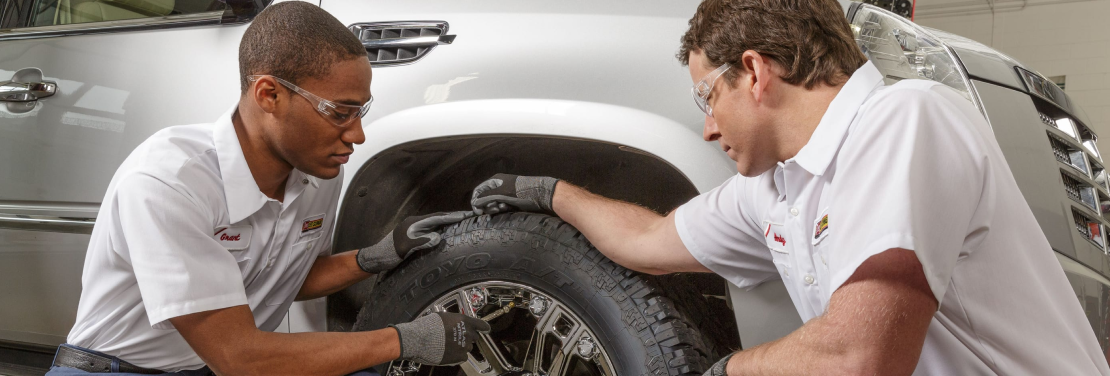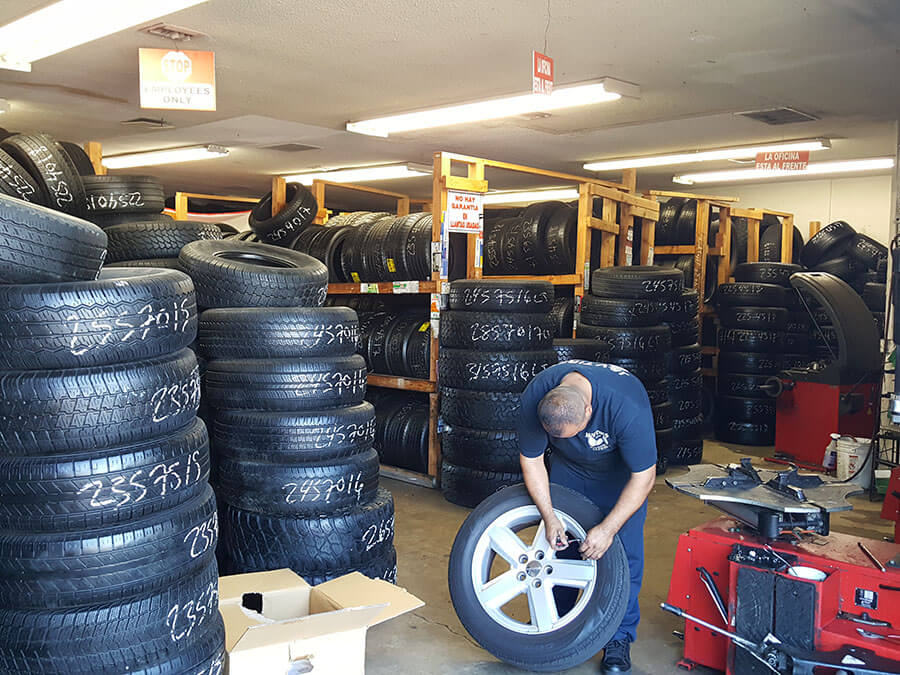Tire Service: Recognizing Tire Stress Tracking Solutions
Understanding Tire Stress Monitoring Equipments (TPMS) is a crucial facet of keeping optimum automobile efficiency and safety when driving. With improvements in automotive innovation, TPMS has ended up being a basic attribute in modern automobiles, providing real-time info on tire stress degrees. Digging deeper right into the ins and outs of TPMS, one can uncover the different components that make up this system and the importance of each in guaranteeing precise tracking. From direct to indirect TPMS systems, the landscape of tire pressure surveillance varies, each with its distinct set of factors to consider and advantages. Keep tuned to unravel the complexities of TPMS, from maintenance pointers to the obvious advantages of keeping your tires correctly inflated. tires morris il.

Importance of TPMS
The significance of Tire Stress Surveillance Equipments (TPMS) exists in their capacity to boost lorry safety and security and efficiency with real-time tracking of tire pressure levels. Preserving the proper tire pressure is vital for making certain ideal handling, stopping, and total security of a vehicle. TPMS provides vehicle drivers with instant feedback on any kind of overinflated or underinflated tires, enabling prompt modifications to be made.
Components of TPMS
Sensors are typically located in the tire shutoff stem or affixed to the wheel assembly, where they measure tire stress and transfer information to the control component. Some advanced TPMS models also show the actual tire stress analyses for each tire, providing vehicle drivers with real-time info to make certain ideal tire performance and safety. By keeping track of tire stress continuously, TPMS aids avoid crashes, minimizes tire wear, and improves gas efficiency, making it a vital component for lorry security and performance. discount tires morris il.
Kinds Of TPMS

On get redirected here the various other hand, indirect TPMS counts on the lorry's wheel speed sensing units to check tire stress. This system detects underinflation by comparing the rotational rates of the wheels. Indirect TPMS is less costly than direct TPMS, as it utilizes existing sensing units within the automobile.
While direct TPMS offers extra exact analyses, indirect TPMS is simpler in style and typically requires much less maintenance. Both systems have their restrictions and advantages, and the option between them typically depends upon elements such as expense, automobile make, and personal choice. Comprehending the distinctions in between these two types of TPMS can aid automobile proprietors make informed decisions concerning tire maintenance and safety.
TPMS Upkeep Tips
Conduct regular checks on the tire pressure degrees and compare them with the TPMS readings to guarantee they basics are consistent. During tire rotation or replacement, make certain that the TPMS parts are handled very carefully to protect against any potential damage. If the TPMS alerting light illuminates on the dashboard, deal with the problem without delay by checking the tire pressures and the overall system for any faults.
Benefits of Appropriate Tire Stress
Keeping proper tire pressure, as stressed in TPMS Maintenance Tips, is vital for enjoying the various advantages linked with optimal tire stress degrees. Additionally, appropriate tire stress guarantees even tire wear, extending the life expectancy of the tires and advertising safer driving problems. In final thought, the advantages of proper tire stress go beyond simply tire durability; they incorporate improved gas efficiency, boosted safety, far better car efficiency, and overall driving convenience.
Conclusion
To conclude, recognizing tire pressure surveillance systems (TPMS) is critical for preserving optimum tire pressure and guaranteeing vehicle security. By recognizing the value of TPMS, being familiar with its components, understanding the different kinds available, sticking to appropriate upkeep pointers, and understanding the advantages of maintaining proper have a peek at this site tire pressure, chauffeurs can improve their driving experience and extend the life expectancy of their tires. Correct tire stress is key to effective and safe lorry procedure.
